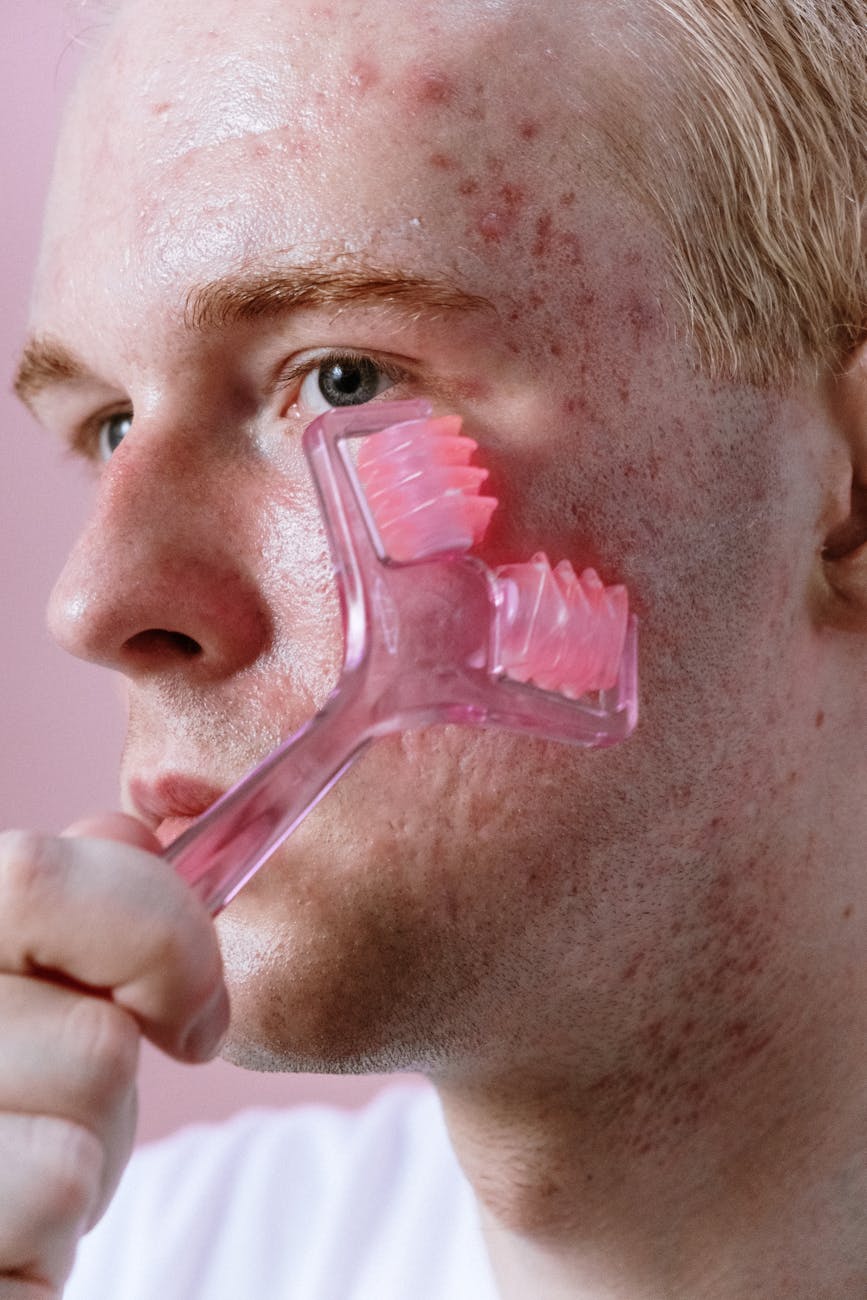-
Acne and Oily Skin: A Common Combination
Acne and oily skin often go hand-in-hand. While both are common skin conditions, understanding their relationship can help you manage and improve your skin’s appearance. Understanding Oily Skin Oily skin is caused by overactive sebaceous glands, which produce sebum, a natural oil that helps to protect and moisturize the skin. When sebum production is excessive,
-
Have you ever considered earning money online?”
* Looking for a flexible way to make an income?” Here’s how it works in a nutshell:First, you sign up to become an affiliate for a company. They’ll give you a unique link or code that you can share with others. When someone clicks on your link or uses your code to make a purchase,
-
Peptides: The Building Blocks of Youthful Skin
Peptides are short chains of amino acids, which are the fundamental building blocks of proteins. In the context of skincare, peptides play a crucial role in stimulating collagen and elastin production, two essential proteins that contribute to youthful, plump, and firm skin.How Peptides WorkWhen applied to the skin, peptides can penetrate the outer layers and
-
A Deeper Dive into Hyaluronic Acid: The Fountain of Youth in Simon Ourian MD ProductsUnderstanding Hyaluronic Acid
Hyaluronic acid (HA) is a naturally occurring substance found in our bodies, particularly in the skin. It plays a crucial role in maintaining skin hydration, elasticity, and overall youthfulness. As we age, our body’s natural production of HA decreases, leading to visible signs of aging such as wrinkles, dryness, and sagging skin.The Benefits of Hyaluronic
-
Simon Ourian: The Skincare Maestro
Simon Ourian isn’t just a name; it’s a promise of flawless skin. From Hollywood red carpets to your bathroom mirror, his influence is undeniable. This cosmetic dermatology wizard has transformed skincare from a routine into an art form. His belief? True beauty isn’t about perfection, but about unlocking your skin’s potential.A Brush with Brilliance simonOurian
-
The premise of Beyond Beauty Club: More Than Skin Deep.its health from within.
Disclaimer: This information reflects my personal experiences and research, and is not professional medical or financial advice. I am not a healthcare professional nor a guaranteed success story. Achieving results requires significant time, dedication, and consistent effort. Success is not guaranteed, and your outcomes may vary significantly. If you have health concerns, dietary questions during
-
Hyaluronic Acid: The Hydration Hero
Hyaluronic acid (HA) has become a buzzword in the skincare industry, and for good reason. This naturally occurring substance is a powerhouse when it comes to skin health. It’s found in our bodies, where it plays a crucial role in maintaining hydration and tissue repair.What is Hyaluronic Acid?Hyaluronic acid is a glycosaminoglycan, a complex sugar
-
The Power of a Skincare Routine: Cultivating Healthy Skin
Healthy skin is a reflection of overall well-being. It’s a protective barrier, a canvas for self-expression, and a vital organ that contributes to our sense of confidence. While genetics play a role, the condition of your skin is largely influenced by external factors and daily care. A consistent skincare routine is the cornerstone of achieving
-
The Benefits of Dermaplaning
What is Dermaplaning? Dermaplaning is a non-invasive cosmetic procedure that involves gently exfoliating the top layer of skin using a small blade. This can help to improve the appearance of the skin by removing dead skin cells and fine hairs. How Does Dermaplaning Work? The dermaplaning procedure is performed using a small, sterile blade that
-
Skincare 101: Decode Your Dermis
Tired of your skin being a drama queen? There a few standard types of skin. Let’s break down the some of peoples major skin concerns. Dry Skin: This flaky, itchy diva needs a moisture makeover. Think creamy cleansers, hyaluronic acid-packed potions, and occlusive creams to seal in that hydration. It’s like wrapping your skin in
Laatste bericht

Geplaatst op
door
Acne and Oily Skin: A Common Combination
Acne and oily skin often go hand-in-hand. While both are common skin conditions, understanding their relationship can help you manage and improve your skin’s appearance. Understanding Oily Skin Oily skin is caused by overactive sebaceous glands, which produce sebum, a natural oil that helps to protect and moisturize the skin. When sebum production is excessive,…
| M | D | W | D | V | Z | Z |
|---|---|---|---|---|---|---|
| 1 | ||||||
| 2 | 3 | 4 | 5 | 6 | 7 | 8 |
| 9 | 10 | 11 | 12 | 13 | 14 | 15 |
| 16 | 17 | 18 | 19 | 20 | 21 | 22 |
| 23 | 24 | 25 | 26 | 27 | 28 | |
affil4ted Affiliate Amazon awin bbfilterfree Beauty BeautyExpert Beauty industry BeautyIndustry beauty standards Beauty tech beauty tips Belgium BestSkinEver Beyond Beauty Club dailyprompt DrSimonOurianMD Earn money on line Entrepreneur European skincare freediving Gifting Giveaway Influencer join the club miniadventures NaturalBeauty Promotion scubadiving self made Entrepreneur SkincareCommunity SkincareExpert PersonalisedSkincare SkinGoals skin types skool Skooolify sun protection super affiliate academy sustainable beauty underwaterphotography underwaterworld Usaaffiliates wanted work from home working from my bed writer